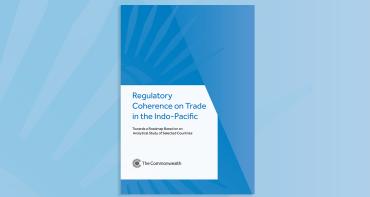For the countries of the Caribbean, the sea is much more than a place for leisure and relaxation. The sea is literally the lifeblood of their economies, supporting the transportation of goods and people through shipping, providing food from fisheries and underpinning the most important economic activity in the region: tourism.

For many people, the thought of spending time sitting on a white sandy beach, besides the turquoise water of the Caribbean Sea, would be their perfect idea of a vacation.
For the countries of the Caribbean region, however, the sea is much more than a place for leisure and relaxation. The sea is literally the lifeblood of their economies, supporting the transportation of goods and people through shipping, providing food from fisheries and underpinning the most important economic activity in the region: tourism.
Many countries now assessing potential economic value of oceanic waters: https://t.co/uBjCAvk1jz #caribbluegrowth pic.twitter.com/NgAL8wClwC
— The Commonwealth (@commonwealthsec) September 14, 2016
Although the Caribbean Sea covers an area of 2.75 million square kilometres, it represents less than 1 percent of the world’s ocean area. Nonetheless, this body of water is a crucial resource in the Caribbean, in particular for the 40 million people who inhabit its many small islands. Indeed, for some countries, particularly small island states, the ocean and national economies are all but indistinguishable.
A new report, Toward a Blue Economy: A Promise for Sustainable Growth in the Caribbean, released by the World Bank and co-authored by the Commonwealth Secretariat, highlights just how important this “Blue Economy” is to the Caribbean.
Although the region’s ocean-based economy is not well measured or understood, the study suggests that activities that rely on the ocean - from leisure and fishing to offshore oil and gas - generated revenues of US$407 billion in 2012. This is equal to 14 to 27 percent of the global ocean economy, though the sea’s area accounts for just 1 percent of the global ocean.
This economic utilisation does not, however, come without a cost. In the Caribbean region, for example, we are seeing a number of deeply concerning trends which threaten to undermine the ocean’s ability to support long term sustainable use.
Many countries have experienced declines in stocks of iconic commercial species such as rock lobster and conch; pollution threatens to human health and the natural character that tourists value; and the reduction in coastal habitats make countries more vulnerable to the impacts of climate change.
#Caribbean Sea offers a bright blue future, if only we value it: https://t.co/uBjCAvk1jz #caribbluegrowth pic.twitter.com/JfwEXjjr6K
— The Commonwealth (@commonwealthsec) September 14, 2016
Goal 14 of the 2030 Sustainable Development Agenda, agreed at the United Nations General Assembly almost exactly a year ago, focuses on the sustainable use of the oceans. It recognises the link between oceans and sustainable development and the importance of maintaining a healthy and resilient marine environment to support the national development.
One of the targets set within Goal 14 is to increase the economic benefits to small island developing states from the sustainable use of marine resources, both living and non-living. We fail to appreciate the importance of this resource at our peril. The challenge is how we promote increased utilisation of the ocean to support development while at the same time preventing further declines in ocean health.
Increasingly, one way of doing this is by emphasising the connection between the ocean’s ecological systems and the human activity that generates economic value and takes place in the ocean. This so-called ‘Blue Economy’ concept recognises that some activities in the ocean economy depend on the underlying ecological systems (the natural capital), while all have the potential to degrade them.
Creating a blue economy in the Caribbean will require major investments of capital and political will and take decades to complete. But sticking with a business-as-usual approach risks the continued decline of a body of water that boasts not only great beauty but underlying natural assets and mammoth economic potential.
Many countries are now assessing the potential economic value of their oceanic waters. By working together, development partners such as the Commonwealth and World Bank can affect real change to the lives of the millions of people, and particularly the poor, who rely on the sea.
#Caribbean Sea covers 2.75mn sq km, representing <1% of world’s ocean area https://t.co/uBjCAvk1jz #caribbluegrowth pic.twitter.com/8zT7kEiGxB
— The Commonwealth (@commonwealthsec) September 14, 2016
The report is published by the World Bank in partnership with the Commonwealth Secretariat, Organization of Eastern Caribbean States and Nicholas Institute for Environmental Policy Solutions at Duke University. Download the report
The authors of this blog are Julian Roberts, Ocean Governance Adviser at the Commonwealth Secretariat, and Pawan Patil, Senior Economist at World Bank Group.



